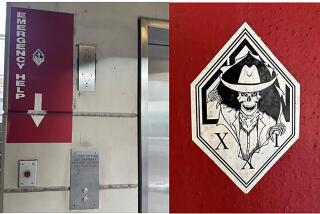Be wary of gang injunctions
A federal appeals court on Tuesday wisely rejected Orange County Dist. Atty. Tony Rackauckas’ misguided effort to enforce a sweeping injunction against dozens of suspected gang members, saying it violated their Constitutional right to due process. The ruling should serve as a warning to prosecutors that if they are going to draw up lists of suspected gang members in hopes of restricting their lawful everyday activities, they must first offer those suspects a meaningful opportunity to challenge the allegations against them in court.
The case involves a move by the city of Orange to crack down on the Orange Varrio Cypress gang. In 2009, prosecutors in Rackauckas’ office asked a state court judge to issue a civil restraining order against 115 people who they claimed were members of the gang. When dozens of those individuals went to court to dispute that they belonged to the gang, Rackauckas’ office abruptly moved to dismiss the case against them. Shortly after, the prosecutors went before the same judge, obtained an injunction against the gang as a whole, and began enforcing it against the same people who had sought to contest their designation.
Rackauckas’ tactics were unacceptable. Injunctions are powerful tools that can help reduce gang violence. The theory is that by placing restrictions on the conduct of gang members — such as imposing curfews on them or limiting where they can congregate — the injunction will undercut a gang’s ability to control the streets and commit crimes. But because restrictions impose strict limits on otherwise legal activities, they should be used sparingly and should be subject to court review to prevent abuse.
Some critics may argue that those who aren’t actually gang members can simply petition to have their names removed. That’s true in theory, and in those cities that provide a meaningful way out. But not every city does. As the U.S. 9th Circuit Court of Appeals noted, Orange left removal decisions up to law enforcement rather than an independent judge. Moreover, it shifted the burden of proof from government, “which ordinarily has the burden of demonstrating active gang participation,” to the individual, who must show that “he or she is not an active gang member.”
Gang injunctions serve a purpose, but they also raise troubling questions about the rights of suspects. The court was correct that if the government wants to restrict the legal activities of suspected gang members who have not been accused of or convicted of crimes, it must move very carefully.
More to Read
A cure for the common opinion
Get thought-provoking perspectives with our weekly newsletter.
You may occasionally receive promotional content from the Los Angeles Times.






